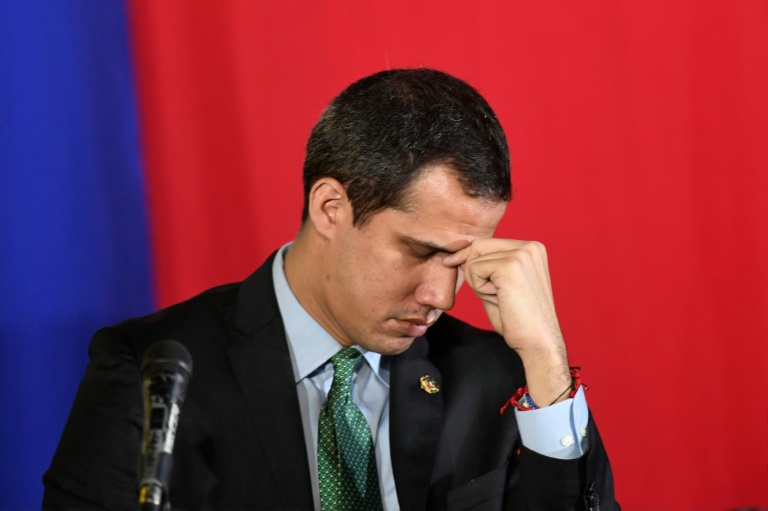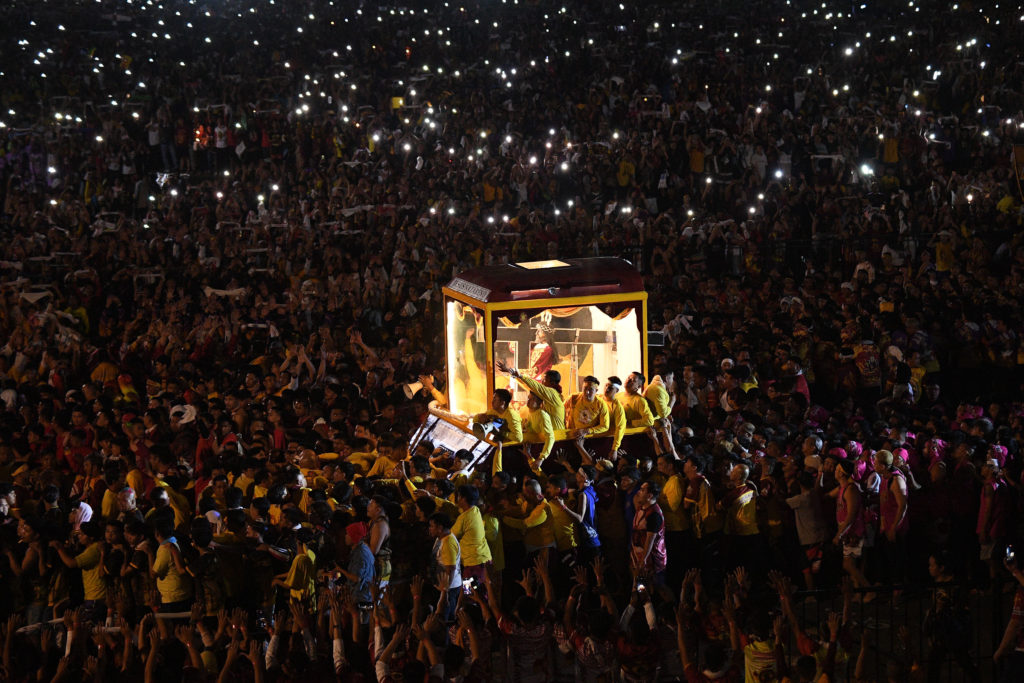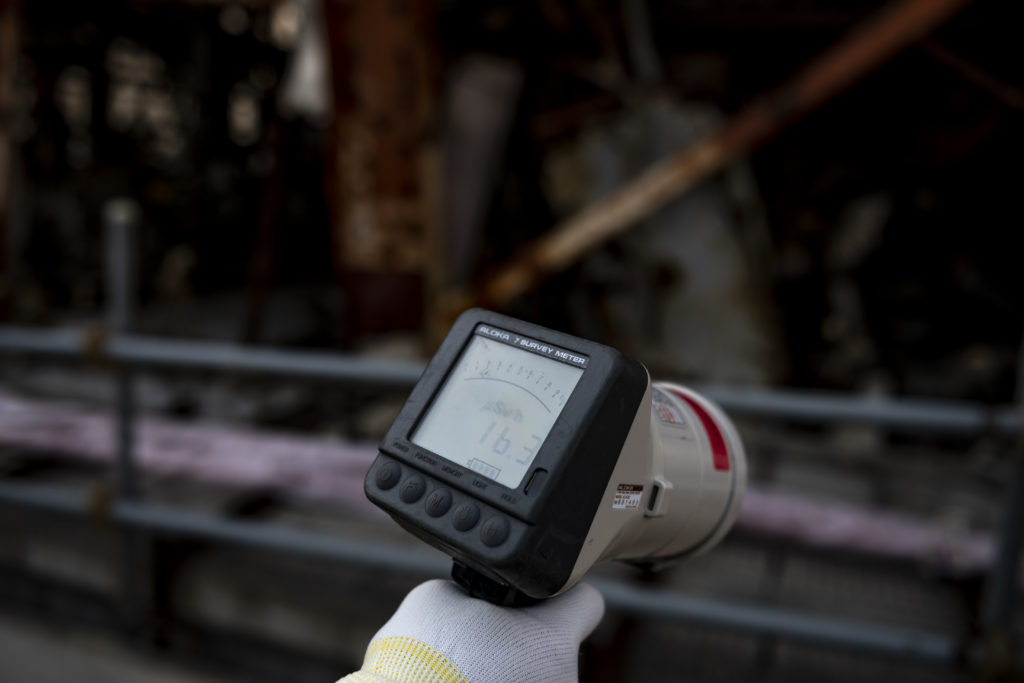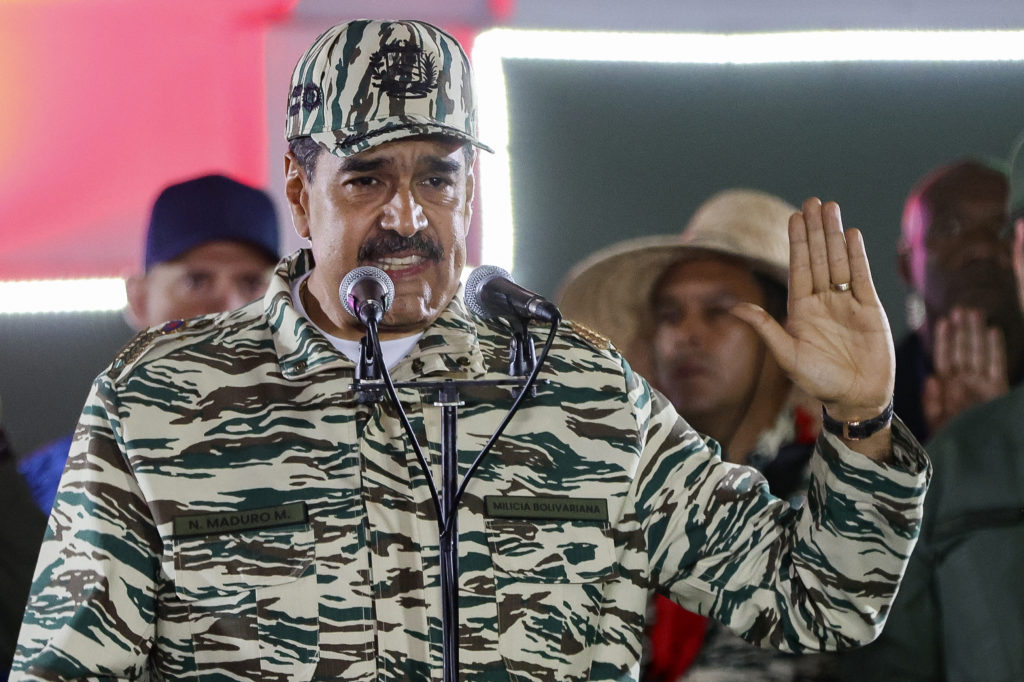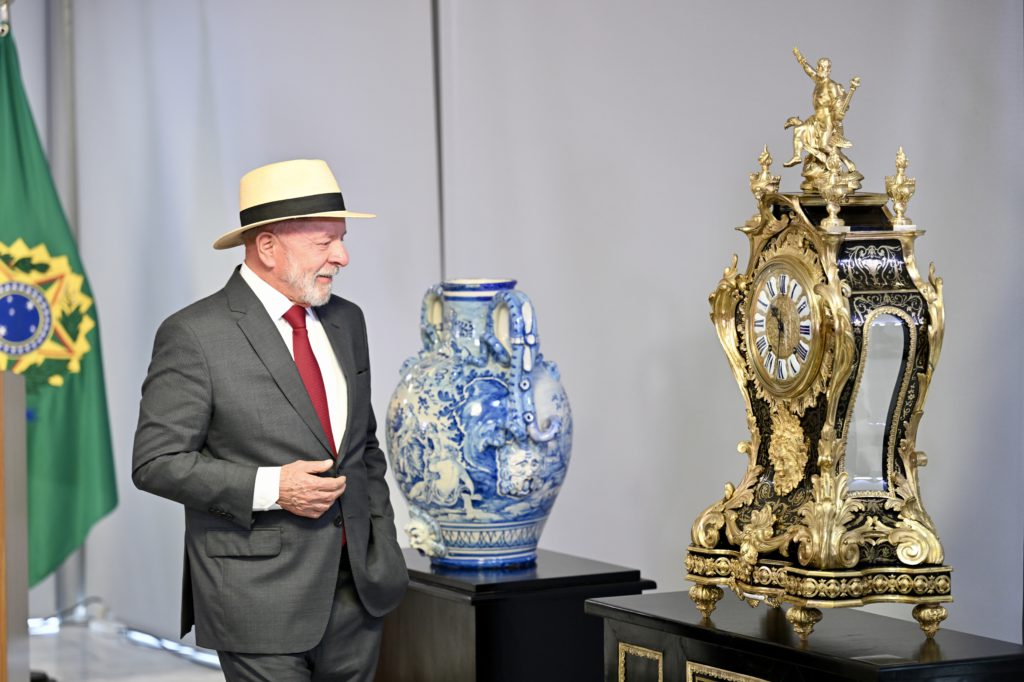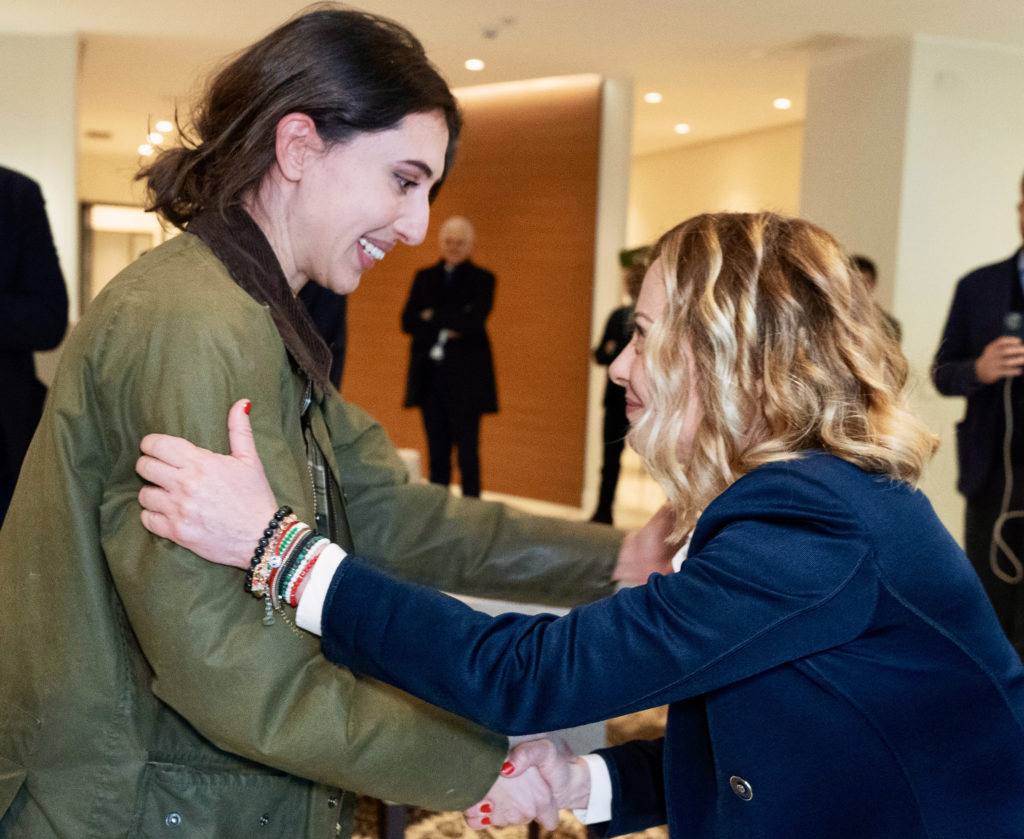Opposition leader Juan Guaido officially began a new year as Venezuela’s “acting president” on Tuesday after his position was renewed by a defunct parliament that continues to sit despite having no home.
Guaido may retain the backing of around 60 countries but in reality, true executive and legislative power rests in the hands of his arch enemy, President Nicolas Maduro, who is supported by the nation’s powerful military.
The parliament said Guaido would assume the responsibility of “defending democracy and directing the protection of state assets abroad,” in a meeting that was as virtual as Guaido’s power.
What Guaido does have, though, thanks to backing from Washington, is control of millions of dollars worth of Venezuelan assets held outside the country, much to Maduro’s chagrin.
“Today the constitution won, today Nicolas Maduro lost,” said Guaido late on Monday night after the opposition-majority congress that assumed office from 2015 to 2021 ratified his continuation as the country’s acting president.
In January 2019, Guaido used his position as parliament speaker to proclaim himself acting president after the opposition-controlled National Assembly declared Maduro a usurper.
Like much of the international community, the assembly did not recognize Maduro’s 2018 re-election in a poll widely branded fraudulent.
The terms of the National Assembly members ended in January 2021 amid an opposition boycott of legislative elections, but the old legislature continues to sit.
“I say it clearly, the one who has an expiry date … is him,” Guaido, 38, said last week.
Maduro, though, was buoyed by a crushing victory in mayoral and gubernatorial elections in November, as a disunited opposition broke three years of boycotts.
Guaido “is lost in the solitude of his own failure … it’s a type of Frankenstein policy that has failed,” said Maduro.
“Imperialism (the US) thought it owned Venezuela and that they could install a president in a colonial style.”
– Washington support crucial –
Guaido’s influence has waned since his dramatic proclamation almost three years ago, and his popularity has plummeted.
While the European Union officially recognizes his interim presidency, it has nonetheless opened channels behind the scenes with Maduro.
Pragmatism is necessary, a diplomatic source said, since Guaido’s claim has run out of steam.
Guaido’s importance, though, is almost entirely dependent on support from Washington, political scientist Pablo Quintero says.
Even with a change of administration in the White House, that has not weakened.
Donald Trump ramped up pressure on the “dictator” Maduro through sanctions and while President Joe Biden has been less vocal on the matter, he has not altered Washington’s position with regard to Guaido.
“It is not nothing that the United States supports a government, even an imaginary one without real power,” said Quintero.
However, to lose that support “would be a catastrophe” for Guaido.
“To withdraw his support would be like making a concession to Maduro without receiving anything in return,” Mariano de Alba from the International Crisis Group said of Biden.
Even so, there is no doubt that Guaido’s position is fragile and many in the opposition want a change of tack.
Julio Borges, the interim government’s former foreign affairs minister, broke ranks but there is seemingly no credible alternative to ensure the foreign assets remain out of Maduro’s hands.
Washington insists it will negotiate only with Guaido over sanctions relief and control of those assets.
Those are important advantages in a 2022 that should be “more conflictual,” according to Benigno Alarcon, a professor at Catholic University.
It starts with a crucial regional election in Barinas, the fiefdom of the family of Maduro’s predecessor, Hugo Chavez.
The opposition already won there in November before the Supreme Court disqualified the winning candidate and ordered a re-election.
There is also the possibility of a recall referendum against Maduro and the continuation of suspended talks between the government and opposition, hosted by Mexico and mediated by Norway.

